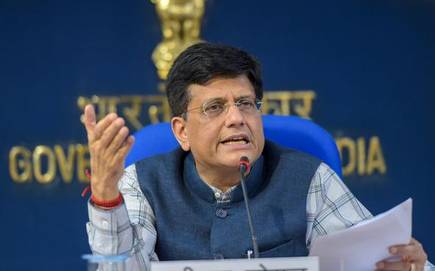Indian agriculture’s much strength and many weaknesses!
How far India has deployed agriculture sectors a political tool of trade and diplomacy?
Indian agriculture matters in today’s world. India is now the world’s number one rice exporter. This has not been widely known. This must be made known widely. Now, the Indian domestic producers of commodities like dairy and plantation products including coffee, tea, rubber, pepper and arecanut are worried of the proposed RCEP deal, the Indian rice trade is keen to see that the cereal is included as part of the deal so that Indian rice trade becomes a powerful tool in making further inroads into the Indian rice as a political and powerful trade factor. INDIAN FARMERS MUST BE EDUCATED IN THE CURRENT FARMING AND TRADE ecosystem.
The present despondency, yes, it is a despondency of what we could call the worst kind of despondency of helplessness and sheer frustration on the part of the entire farming community where they don’t matter whether it is major policy making or any purposeful consultation the real stakeholders, the farmers, don’t seem to matter. Farmers as a community is almost ignored and they feel isolated and left out of any meaningful participation and consultation.

This mutual distrust and real bitterness must go. Otherwise we are only helping to grow the underlying distrust and disengagement with the country’s traditional strength of the Indian economy. India, as we say, is basically a large agricultural power. India would remain a big agricultural power for a long time to come.
Don’t imagine converting like a modern China or for that matter like a new USA. India would remain a traditional agricultural and rural power house. This awareness has to be spread and every initiative must be taken to create a wide awareness among the youth and the educated middle class.
Government-job dependent Indian middle class must be made to become sensitive to this modern world awareness. Agriculture and food production and food supply would become more and more central to world economy and there are many issues that affect India, Asia and Africa where food shortages and hunger are every day reality.
Indian can become world food supplier and this would be a reality for most of the world people. Who matters when one talks of Indian agriculture? Of course farmers come first and what the farmers feel about their sector’s future prospects matter a great deal. But we are now accustomed to see when agriculture comes into a discussion. At least in the recent past, in the last few elections, farmers come to the frontline and every other politician, that is party leaders in particular have brought farmers’ issues to the forefront and made so many promises that are usually broken soon after the very same elections. One prominent promise that is much bandied about is the write-off of farm loans!
As on date one is not sure how many times a state had made this promise and how far these promises had been fulfilled! One can be certain in most cases these promises are not kept and the underlying reason is that the particular state has no resources to wipe off the loans. Yes, even then this farm loan waiver has come to be seen as the lifeline for the government to win votes and form government. And lately, there are many more versions and variations. One is the current buzz to ensure farmers a yearly fixed income as an alternative to farm loan waiver. All this in addition to blatant bribes to voters on the eve of elections!
So, voters and farmers are not quite sure that they would be taken care of in times of elections. Of course no one stops to ask what more for agriculture sector besides these periodical promises. So, one thing can be sure of now. That is, Indian agriculture becomes a priority in times of elections. And of course we can forget that Indian is a democracy, a very large one and there would be periodic elections and agriculture development would be there every time there are elections.
Is this all too Indian agriculture’s priorities?
No, it is not and it can’t be just these periodic election handouts. Indian agriculture unfortunately has been reduced to very low priority and that is one indication why no one leader of any importance doesn’t talk of agriculture! Even the Modi government is no exception to this rule, in spite of the huge wins in the last two general elections.
What is the Modi government’s big announcements?
Doubling farmers incomes remain a promise as yet. We have to see what the chance, if at all is.
There are now many trade talks, between India and USA and also between USA and China on trade deals and agriculture products comes in for much attention. Just now as we write there are trade talks in the Regional Comprehensive Economic Partnership (RCEP), the countries in the South East Asian region.
The countries involved are all big agricultural countries, strong in rice production and exports. And India is the biggest rice producer and exporter. Thailand, Vietnam and others. India is sensitive to some of the, why even the most important commodities, like coffee, tea and, rubber, pepper and areca nut and there are also some existing trade agreements and so every country of this region is very careful to renegotiate trade deals that could affect their major commodity trades and could affect the likes of majority of farm people, both labour and producers.
From India, the Commerce Minister, Mr.Piyush Goyal, one of the able ministers in the Modi Cabinet is in charge and from his pronouncements we can be sure the minister could take care of what he calls the “Red line issues”.
Yes, certain concessions can’t be conceded, like say palm oil imports from Malaysia, even tea from Sri Lanka, for any change in the existing tariffs could affect the domestic producers of these commodities.